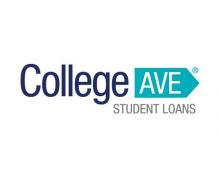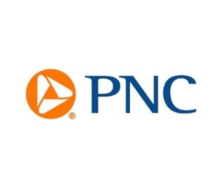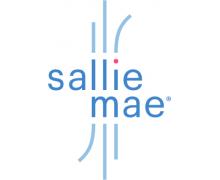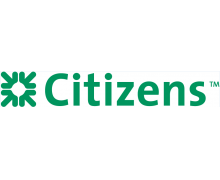Financial Aid FAQs
What is the basic process of applying for federal financial aid?
Applying for federal financial aid involves several key steps to ensure you’re considered for financial assistance, such as grants, work-study programs, and federal student loans. Here's the basic process:
1. Create a StudentAid.gov Account
- What it is: The StudentAid.gov Account (also known as a Federal Student Aid (FSA) ID) is a username and password you’ll use to log in to the Federal Student Aid website and sign important documents.
- How to do it: Go to the StudentAid.gov account website and create your account. If the student is required to have parent information on the FAFSA, then both student and parent(s) will need separate StudentAid.gov accounts.
2. Complete the FAFSA (Free Application for Federal Student Aid)
- What it is: The FAFSA is the key form for applying for federal financial aid. It collects your financial and family information to determine your eligibility for aid.
- How to do it:
1. Log in to the FAFSA website (studentaid.gov).
2. Fill out the FAFSA: The form will ask for personal details, financial information (e.g., income, assets), and family information. It will also ask about the schools you're applying to, so have a list of them ready.
3. Consent to using the IRS Direct Data Exchange (if eligible): Once you give consent on the FAFSA, the FAFSA will automatically transfer your tax information from the IRS to the FAFSA, making it easier to complete and more accurate.
4. Submit the FAFSA: After reviewing all your information, submit the FAFSA.
3. Review Your FAFSA Submission Summary (FSS)
- What it is: After submitting your FAFSA, you’ll receive a FAFSA Submission Summary (FSS) summarizing the information you provided.
- What to do: Review the FSS for accuracy. If any information is incorrect, you can make corrections. The FSS will also show your Student Aid Index (SAI), which is used by schools to determine your financial need.
Do I have to file the FAFSA each year I am in school?
Yes. The FAFSA is an annual application, and you must submit it for each academic year in order to be considered for federal financial aid, including grants, work-study, and loans. Your financial situation may change from year to year. This includes your family's income, assets, and other factors that affect eligibility for aid.
What information will I need in order to fill out the 2023-2024 FAFSA?
To complete the 2025-2026 FAFSA, you'll need various personal and financial information from both the student and, if applicable, the parents (for dependent students). Here is a comprehensive list of what you'll need:
1. Student Information
- Social Security Number (SSN) or Alien Registration Number (if applicable)
- Driver's License Number (if you have one)
- Date of Birth
- Email Address
- Phone Number
- Address (permanent and mailing)
- High School Completion Status (graduated from high school, received a GED, etc.)
- List of schools you're interested in attending
2. Parent Information (if you are a dependent student) or Spouse Information (if you are married)
- Social Security Number (SSN) or Employer Identification Number (EIN) (if the parent or spouse is not a U.S. citizen)
- Date of Birth
- Marital Status (e.g., married, single, separated, divorced, or widowed)
- Parents’ or Spouse’s Email Address and Phone Number
- Parents’ or Spouse’s Address (if different from the student's)
3. Financial Information
- 2023 Federal Income Tax Returns (or 2023 IRS 1040 forms for the student and/or parents)
o If you didn’t file a tax return, you’ll need a copy of your W-2 forms or other records of income received, such as pay stubs or records from self-employment.
- IRS Form 1040 or other equivalent forms for your tax year 2023.
- W-2 Forms (for the student and/or parents)
- Records of untaxed income (for both the student and parents), such as child support, veterans benefits, or workers’ compensation.
- Bank statements (checking, savings, or other accounts) for the student and parents.
- Records of investments (stocks, bonds, real estate, business investments, etc.)
- Records of any assets, such as savings accounts, money market accounts, and real estate owned by the student or parents (other than the primary residence).
- Net value of owned business(es) or farm(s) (if applicable).
- Child support paid or received (if applicable).
4. StudentAid.gov Account
- A StudentAid.gov account is required to sign the FAFSA electronically. The student and parent(s) (if applicable) will need to create an account if they don’t already have one. If a student is married, their spouse may need a studentaid.gov account to fill out and sign the FAFSA.
Make sure all documents are for the correct year, as the FAFSA requires financial information for the 2023 tax year for the 2025-2026 application. Gathering all these materials in advance will help you complete the process smoothly.
I have a unique family situation that doesnt fit the mold, how do I answer questions on the FAFSA?
- General FAQS about the FAFSA
- Determining your dependency status
- Reporting Parent information on the FAFSA
- What to do if you can’t report parent information on the FAFSA
- Reporting special financial circumstances
- Students with parents or spouses who don’t have an SSN
- Refugee Students
- Eligible non-citizens
- Homeless or at-risk students
- Incarcerated students
What are some common mistakes to avoid when filling out the FAFSA?
Explore tips and common errors at NASFAA's FAFSA tips .
Do I have to be admitted to a college before I file the FAFSA?
No, you do not need to be admitted to a college before you file the FAFSA. However, your school may not process or review your FAFSA until you are admitted into an aid-eligible program.
You can add or remove schools later if your list of choices changes.
I successfully filed the FAFSA, now what?
If you submitted your FAFSA online, you’ll receive an email notification from Federal Student Aid and your information will be forwarded on to the schools listed. The schools will then review and award financial aid based on their individual processing timelines.
If you file a paper FAFSA, processing timelines will be substantially longer.
Here’s what you can expect once your FAFSA is processed:
1. Receive Your FAFSA Submission Summary (FSS)
After you file the FAFSA, you will receive an FSS. The FSS summarizes the information you provided on the FAFSA. Check it carefully for errors. If there are mistakes, you may need to correct them.
2. Review Your Student Aid Index (SAI)
The FSS will include your Student Aid Index (SAI), which is a number that colleges use to determine how much financial aid you may be eligible to receive. The lower the SAI, the more financial aid you may qualify for.
- Verify your information (if selected for verification). Some students are asked to provide extra documentation to confirm the details on their FAFSA.
3. Financial Aid Offers
The schools you listed on your FAFSA will use the information from your application to determine your eligibility for financial aid. These overviews will outline the types and amounts of aid you're eligible for, including:
- Federal grants (e.g., Pell Grant)
- State grants
- Work-study opportunities
- Federal student loans
4. Accept or Decline Aid
After reviewing your aid offers and deciding which school you are going to attend, you’ll need to accept or decline the financial aid from your school.
6. Finalize Financial Aid
If you accept a financial aid offer, you may need to complete any additional paperwork or forms required by the school.
How can I apply for state financial aid?
How do I know if a scholarship I found online is a scam or not?
Here are some rules of thumb to follow when searching for scholarships:
- If you must pay money to get money, it might be a scam. Most legitimate scholarship foundations do not charge application fees.
- Nobody can guarantee that you'll win a scholarship, so if it sounds too good to be true, it probably is.
- If you're suspicious of an offer, it's usually with good reason.
Before applying, check with others to see if anyone has had any experience with the company or organization.
What are some reputable sources of scholarships out there?
The following links are general search engines for many types of scholarships:















